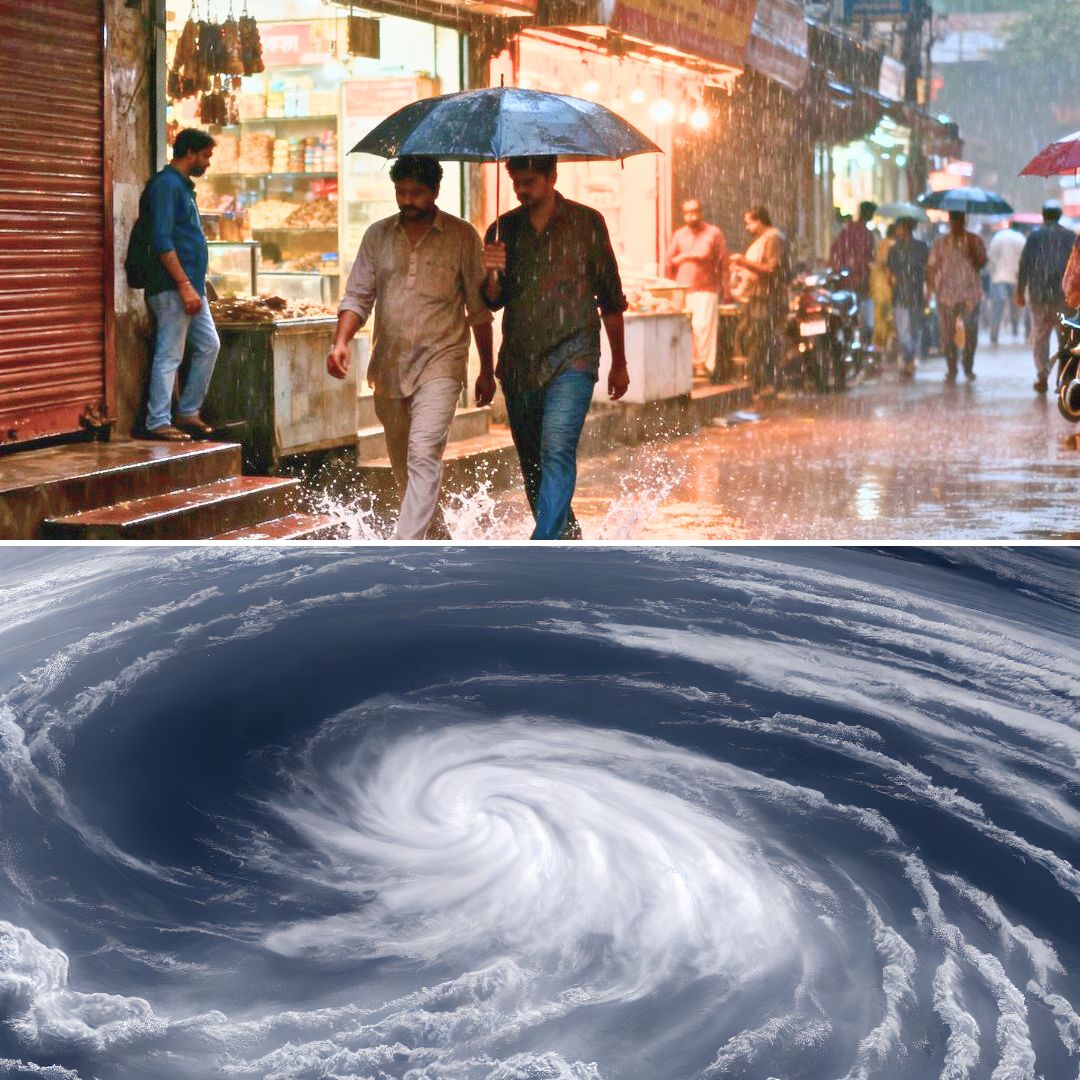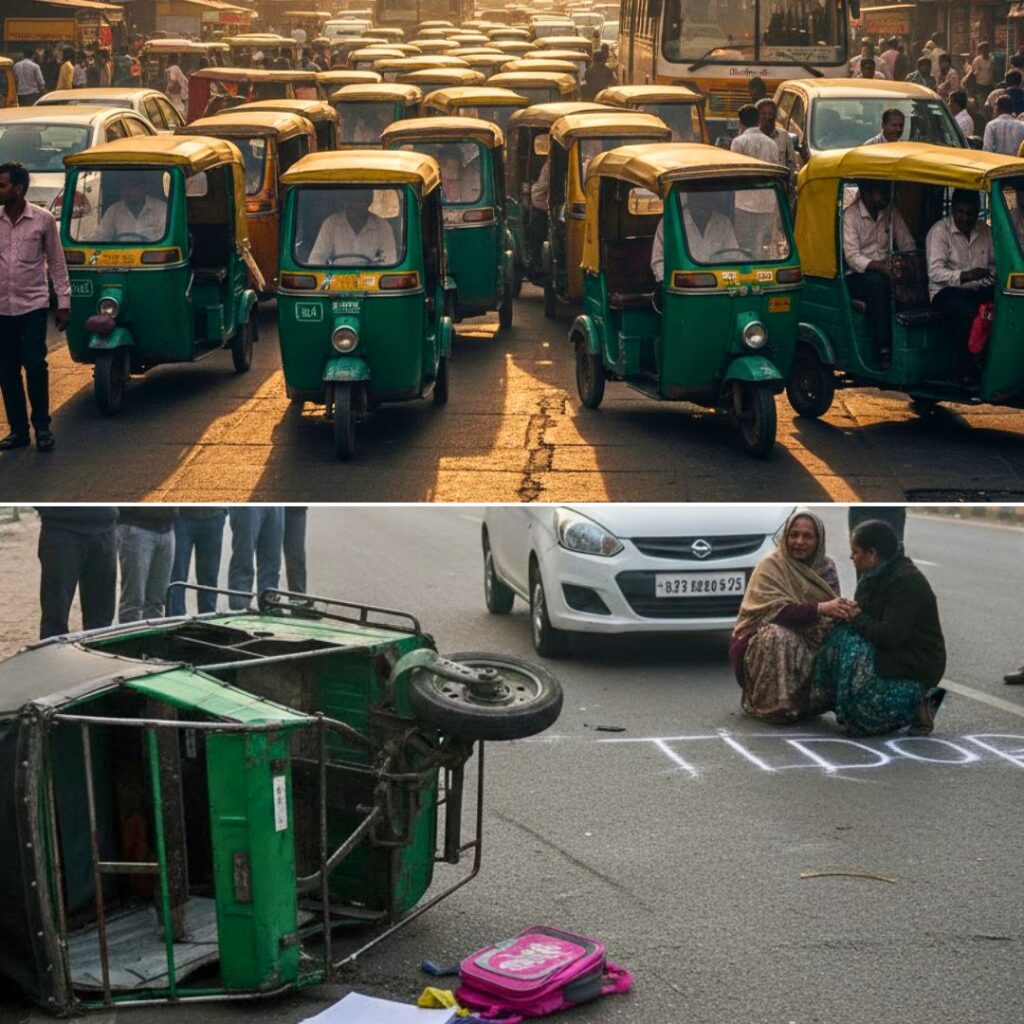The India Meteorological Department (IMD) has confirmed that Cyclonic Storm Ditwah, currently located about 440 km south-southeast of Puducherry and 540 km south of Chennai, is moving north-northwest towards the coasts of northern Tamil Nadu, Puducherry, and southern Andhra Pradesh.
The storm is expected to make landfall by November 30, bringing heavy to very heavy rainfall, strong winds, and rough sea conditions to these regions. Multiple states including Tamil Nadu, Andhra Pradesh, Kerala, Telangana, and Karnataka have been placed under varying levels of alerts and warnings as authorities prepare for the storm’s impact.

Formation and Movement of Cyclone Ditwah
Cyclone Ditwah formed from a deep depression near Sri Lanka’s eastern coast over the southwest Bay of Bengal on November 26. The system intensified steadily and is tracking north-northwest at around 7 to 15 kmph.
After crossing Sri Lanka’s coast, it is expected to move over the Bay of Bengal and approach the Tamil Nadu and Puducherry coasts by early November 30 before advancing towards adjoining areas of Andhra Pradesh.
The storm features wind speeds estimated around 60-80 kmph near the center with gusts reaching up to 90 kmph. Outer rain bands have also brought heavy showers and thunderstorms to parts of coastal Tamil Nadu and Andhra Pradesh over the past days.
State and Official Preparations
Tamil Nadu’s State Disaster Management Authority issued red alerts for several districts including Thanjavur, Tiruvarur, Nagapattinam, and Mayiladuthurai, with orange alerts for Chennai and neighbouring districts.
Chief Minister MK Stalin convened a special meeting to review disaster preparedness and has urged government departments to coordinate emergency response efforts. Fishermen along the Bay of Bengal and the Sri Lankan coast have been advised to avoid venturing into the sea for up to five days.
Heavy rainfall predicted over November 28 to December 2 is expected to relieve seasonal drought deficits but also raises flood risks that officials are diligently monitoring.
Safety Precautions
Residents in affected areas should stay indoors and avoid unnecessary travel, especially near the coast, old buildings, trees, or electrical poles that could become hazards during high winds and heavy rain.
Secure homes by trimming loose branches, clearing drains to prevent flooding, and stocking essential supplies like food, water, medicines, torches, and batteries for potential power outages. Keep children and vulnerable family members inside at all times.
Fishermen must not venture into the southwest Bay of Bengal, Gulf of Mannar, or along Tamil Nadu and Puducherry coasts for the next five days, as sea conditions will remain dangerous with gusty winds.
In case of emergencies, contact toll-free numbers 1077, 1070, 112, or WhatsApp 94889 81070. Follow local authority updates, evacuate low-lying areas if instructed, and cooperate with disaster teams for safety.
Items to Include in a 72 Hour Emergency Kit
1. Water and Food Supplies
Store at least one gallon of water per person per day for three days (minimum 3 gallons per person), prioritising drinking and sanitation needs. Include a three-day supply of non-perishable food such as canned goods, dried fruits, peanut butter, and energy bars, along with a manual can opener, mess kits, paper plates, cups, utensils, and paper towels.
2. Lighting and Communication
Pack flashlights with extra batteries, a battery-powered or hand-crank radio, and a whistle for signalling help. Add a cell phone with chargers, extra battery, solar charger, and local maps for navigation if power or signals fail.
3. Medical and Hygiene Essentials
Assemble a first aid kit with bandages, ointments, gauze, tweezers, scissors, pain relievers, anti-diarrhea medicine, antacids, and a two-week supply of prescription medications. Include moist towelettes, soap, hand sanitizer, toilet paper, tissues, feminine supplies, toothpaste, toothbrushes, sunscreen, and garbage bags with ties for sanitation.
4. Shelter, Clothing, and Tools
Provide emergency blankets or sleeping bags for each family member, a change of clothes, sturdy shoes, and personal hygiene items. Equip with a multi-purpose tool, duct tape, plastic sheeting, dust masks, fire extinguisher, matches in a waterproof container, and extra house/car keys.
5. Documents and Special Needs
Keep copies of important documents like IDs, insurance policies, medical records, and emergency contacts in a waterproof bag, plus cash in small denominations. For families, add infant formula, diapers, pet food/water, games/books for children, and items for elders or pets.
The Logical Indian’s Perspective
The imminent approach of Cyclone Ditwah underscores the critical importance of robust disaster management and climate resilience strategies. Timely warnings and coordinated government action are vital to safeguarding lives and property, especially in vulnerable coastal communities.
The Logical Indian advocates for strengthening community awareness and solidarity to face such natural calamities while fostering empathy and cooperation.












